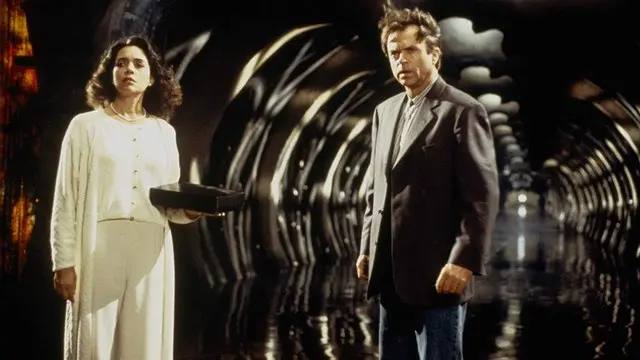Here’s the thing about professional fighters: They are not like regular people, in the sense that their brains and bodies are conditioned to do things that regular people can’t. But they are like regular people, in the sense that they host entirely human brains in their entirely human bodies, in the sense that they also get hungry and sleepy and old, in the sense that they struggle not just with ligaments and bones but with focus, inspiration, motivation, and all the other general parts that make up for the entirety of the human experience.
If this sounds like an obvious statement, well, it is. We all know, I would assume (hope?), that athletes are not robots. We all know, at a conscious level, that they are made of the same organic materials as the rest of us and are therefore fundamentally subjected to at least similar levels of stress, damage and decay as the rest of us.
Our understanding of athletes as people is, in fact, at the root of why we sympathize with and cheer for them; as spectacular and seemingly unachievable as some of their feats might be, there’s something alluring about the fact that they’re made up of the same basic human materials as we are. About the idea that, in a different life spent under entirely different circumstances, what they’re doing might be a thing we could maybe who knows perhaps be able to do. About the fact that, regardless of all the belts and medals and trophies, they still have to take their kids to school and pick up their dog’s poop and worry about tooth infections and bad break-ups and whether they’re generally doing enough to exist as proper people on this planet.
EL CUCUY ?
[ #UFC262 | @TonyFergusonXT | Live NOW on E+ PPV: https://t.co/EYcvjCHR5s ] pic.twitter.com/PtZ5acBr9h
— UFC (@ufc) May 16, 2021
Of course athletes are people. That’s a simple, objective statement of fact.
The thing with being a watcher of sports, though, is that there’s a limit to what simple, objective statements of fact can do. True enjoyment of any athletic competition, I would argue, involves some level of dissociation; boiling down a game of ball to its most fundamental aspects and mathematical implications, for instance, probably wouldn’t make for the most thrilling of experiences.
In MMA, however, that dissociation takes on new meaning. Knowing what we know about the sport, from its physical consequences to the overwhelmingly exploitative system that surrounds its participants, there is a choice (more conscious for some than others) to be made whenever we sit down for an event. If we’re going to enjoy that spinning-kick knockout, we need to not think too much about its possible implications on a human jaw.
If we’re going to appreciate that heel hook, we need to temporarily disregard its effects on human tendons. If we’re going to be thrilled by that five-round slobberknocker, we need to briefly disconnect from the knowledge of what it might mean for human brains. It’s crazy, really, when you think about it; we get to witness humans at both their toughest and most fragile, while existing at both our most empathetic and desensitized. We know fighters are not robots, and that’s why we’re so invested in watching them in the first place, but we also can’t afford to think about it too much.
Chris Weidman had to be stretchered off after suffering a gruesome injury vs. Uriah Hall at UFC 261.https://t.co/QcVG8TWIoZ pic.twitter.com/wcQ2LYT1NW
— Yahoo Sports (@YahooSports) April 25, 2021
One of the most annoying personality traits of MMA, however, is that it refuses to let us bask in the comfort of our disconnection for too long.
It’s hard to pinpoint the single most inconvenient aspect of the human experience, but I would say aging ranks high on the list. We know, no matter how many things we take, apply and inject, that things will droop and creak and atrophy and eventually we won’t be able to move about the world as we once did.
Deterioration is a dreadful word, but it is also an organic inevitability. We know this about ourselves and we know this about others. We know this about actors and athletes and, obviously, fighters. We’ve seen it happen, again and again. Yet, being aware doesn’t necessarily mean being ready. Call it projection, denial, willful ignorance or all of the above, but there’s something painful about seeing someone who was very good at a thing suddenly being not as good at this thing. And I use the word “suddenly” liberally here, because of course it’s not sudden. It might seem that way for us, who generally only get to see these people a couple of times a year and who also don’t really go around digging too deep for the signs because, frankly, why would we? We want to be unnecessarily reminded of the full humanity of these humans as much as we want to be reminded of our own, which is not much.
We know fighters aren’t robots and therefore we know they won’t be good at fighting forever but we also don’t want to really know that until we absolutely have to.
Damn, this photo of Tony Ferguson from Saturday night makes me really sad. pic.twitter.com/JSzUn9ayh3
— Greg Rosenstein (@grosenstein) May 17, 2021
Because, as we know, we will inevitably have to.
We had to just this past Saturday, at UFC 262, when we heard the pops and the cracks and saw the looks on the faces of Tony Ferguson and Ronaldo Souza. Ferguson, who just yesterday was the man we thought could beat Khabib Nurmagomedov, is now on a three-fight losing skid made up of thoroughly unimpressive performances, while Souza, lifelong enemy of arms, necks and all major arteries, was now the one stuck in limb hell. It’s hard to tell a slump from a decline without the benefit of hindsight, and I’m not here to close the door on careers I have no involvement in, but in both cases it was hard to miss a feeling that we’ve felt enough times to recognize but never enough times to fully digest. The feeling of watching something end.
That’s probably why the sight of a 41-year-old Glover Teixeira training in his crocs for a UFC title in 2021 feels a bit like a hug to the heart.
Because even though we now seem to know enough about the long-term effects of MMA to show a little more respect for its deadlines, there’s just something irresistible about the idea that, while you can’t fight time, maybe you can cheat it a little. Unlike many of his colleagues, Teixeira had a neat little arc — get into the UFC, get a title shot, lose said title shot, struggle with injuries, alternate respectable wins and key losses so as to slowly fade away from title contention — that could have made for a clean(ish) break.
He never went on a long skid or looked like someone who had no business being inside the cage, but a 3-3 run from 2016 to 2018 seem to light up the exit signs above it. Had Teixeira decided to leave then, after a decision loss to Corey Anderson, we would have probably applauded him for his self-awareness and presence of mind. But he didn’t, and as a result he gets to have a second shot at becoming UFC champion, while we get to have a bit of a truce with time.
41 years old and training for a title fight while wearing crocs. A legendary flex. pic.twitter.com/WjoTDBzMnF
— MS (@UFC_Obsessed) May 11, 2021
It’s a truce that, again, our conscious brains know is going to be short-lived. We’ve seen too many endings to expect any of them to be happy — or, quite frankly, to be able to tell what that even means. But that’s OK, or at least understandable. In a sport where time is so ruthless and sneaky, where the lines between “sad” and “inspirational” are so easily crossed, it makes sense that we would want to take our breaks where we can get them. To bask in our merciful ignorance for as long as it will allow us. To let ourselves believe, however briefly, that there are humans out there who can outperform their own humanity. Because that might just mean we can do it, too.


